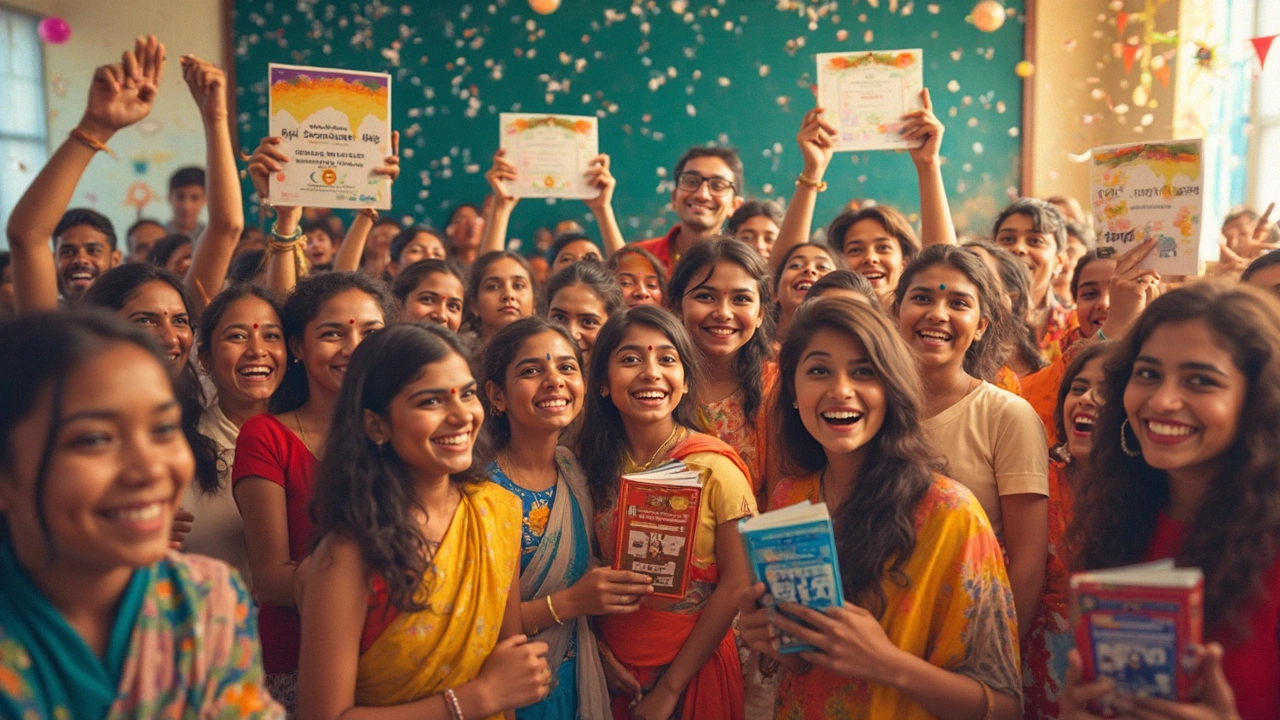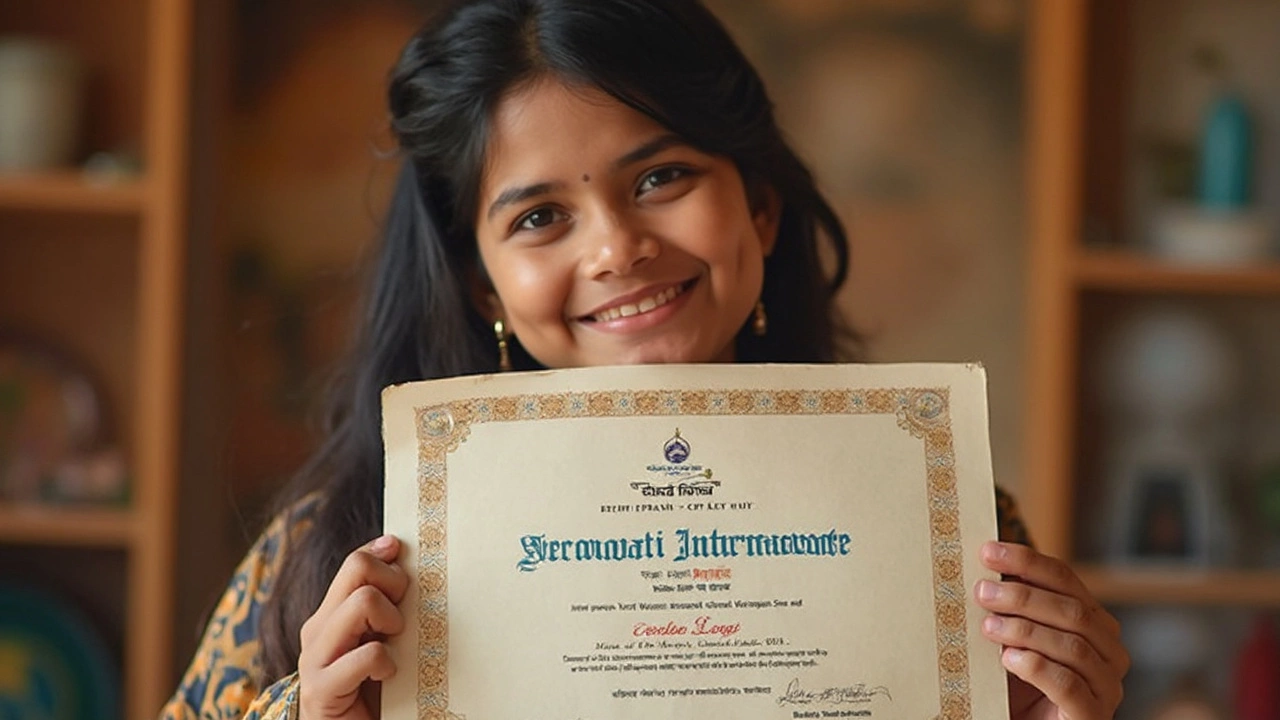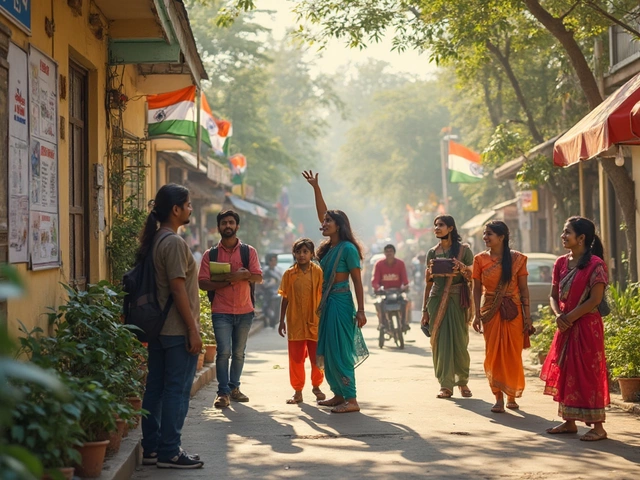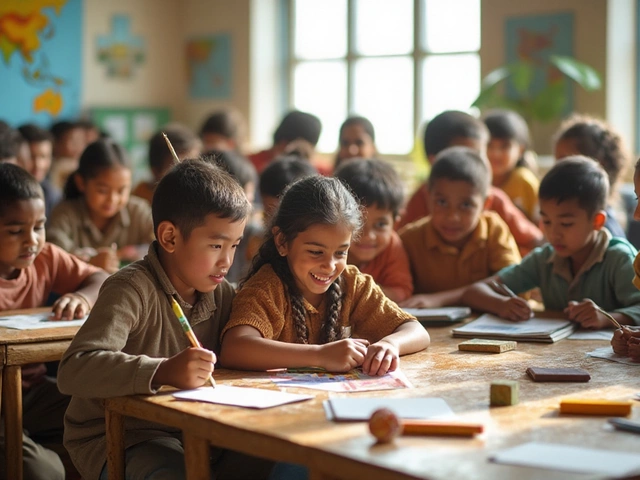
So, you're curious about what a 12th class degree is called in India, right? It’s like the gateway to adulthood and higher education! Most folks know it as the ‘Senior Secondary School Certificate’ if we’re talking the official language of it. But, to make it simple, many just say ‘Intermediate’ or ‘+2’ since you’re adding two more years of education after the standard 10 years.
If you’re planning on diving into college or some specialized field, this certificate is your golden ticket. It’s called different things depending on which state you're in or what board you’re under – like CBSE, ICSE, or various state boards. Using these names can help when focusing on specific education paths in different regions of India.
- Understanding the 12th Class in India
- Names of the 12th Class Certificate
- Importance in Career and Further Studies
- Tips for Navigating the 12th Grade
- Interesting Facts about the Indian Education System
Understanding the 12th Class in India
The 12th class degree in India stands as a pivotal point in the academic journey of any student. It's not just another grade—not in India! After all, it sets the stage for college entry, deciding if you’ll spend your next few years as a doctor, engineer, or starting a fresh career path.
In India, this phase is overseen by various education boards, with the Central Board of Secondary Education (CBSE) being the most recognised across the country. You might also encounter the Indian Certificate of Secondary Education (ICSE) or numerous state board systems.
The Curriculum
Expect a broad range of subjects, typically chosen based on streams like Science, Commerce, or Arts. Each stream has its own set of core subjects and electives. Science students, for instance, tackle Physics, Chemistry, Biology, or Mathematics, while Commerce folks dive into subjects like Economics and Accountancy.
Exams and Evaluations
Examinations play a huge role here. Your performance in these will hugely influence your college application process. So, plan that study schedule wisely! We've all heard those tales of students cramming at two in the morning!
A fascinating thing here is how students from different boards get rated. The CBSE uses a grading system, giving a grade point average, which makes broad comparison easier across students from different schools.
| Board | Exam Month |
|---|---|
| CBSE | March |
| ICSE | February-March |
| State Boards | Varies by state, usually March |
Beyond Academics
It's not just about books, though. The 12th grade shapes you in other ways too. Extracurricular activities often spice up the otherwise intense routine, offering a breather and shaping holistic growth. So, this period is where you balance academics with developing your skills and interests.
Looking towards college or your future job, understanding and acing the 12th class in India builds a solid foundation. Hope this clears up what this critical schooling stage means and how impactful it really is!
Names of the 12th Class Certificate
When you finish the 12th grade in India, what you get isn't just a piece of paper. It's a key step on your academic path. But, it goes by different names, which can sometimes be confusing. Let's clear it up!
For students following the CBSE syllabus, the certificate is officially called the ‘AISSCE’—All India Senior School Certificate Examination. Quite the mouthful, isn’t it? But it’s one of the most recognized in the country.
If you’re studying under the ICSE board, it’s referred to as the ‘ISC’ or Indian School Certificate. Not too different, but it packs the same punch for college admissions.
Now, when you move across different states, things change a bit. Many state boards have their own names. In Maharashtra, for instance, it’s called the ‘HSC’ or Higher Secondary Certificate, while in Tamil Nadu, they go by ‘12th State Board’ exams.
Common Names: A Quick List
- CBSE Board: AISSCE - All India Senior School Certificate Examination
- ICSE Board: ISC - Indian School Certificate
- Maharashtra State Board: HSC - Higher Secondary Certificate
- Tamil Nadu State Board: 12th State Board Exams
So, whether you're flipping through a college brochure or filling out an application, knowing these names can definitely come in handy. They signify the same level of education and are crucial for your next steps, whether that’s university or stepping into the job market.

Importance in Career and Further Studies
Scoring well in the 12th grade is no small potatoes—it's a big deal. This marks the end of school and the start of something bigger, like college or a career. What you do here can steer you towards a whole bunch of opportunities. For students under the CBSE syllabus, acing this stage can open doors to dream colleges and universities.
Why is it so important, you ask? Well, many universities in India use these grades as the first checkpoint in admissions. Of course, it's not just about college. Various competitive exams use your 12th class degree as a baseline requirement. Got your eyes set on engineering? Then you'd be looking at the JEE (Joint Entrance Examination). Medicine more your thing? NEET (National Eligibility cum Entrance Test) would be the hurdle to jump.
Key Career Pathways
Let's say you've got your 12th certificate. What can you do with it? Here's a quick rundown:
- Science Stream: Options like engineering, medicine, or research in scientific fields.
- Commerce Stream: Careers in business, accounting, finance, and related sectors.
- Arts Stream: Opportunities in humanities, literature, social sciences, and more.
Each stream leads to specific careers and further education paths. Choosing the right one matters!
A Snapshot of Options
| Stream | Example Careers |
|---|---|
| Science | Engineer, Doctor, Scientist |
| Commerce | Accountant, Business Analyst, Banker |
| Arts | Writer, Psychologist, Historian |
All in all, your 12th class degree in India can play a pivotal role. It's not just a certificate—it's a stepping stone to whatever you dream of achieving. So, aiming for good marks? That's not just about numbers; it's about setting the stage for your future!
Tips for Navigating the 12th Grade
The 12th grade is like running the last lap in a marathon – you gotta pace yourself and keep your eye on the finish line. Here are some tips to get you through it like a pro!
1. Get Familiar with Your Syllabus
No one likes surprises, so make sure you know your CBSE syllabus inside out. Look at what's covered and prioritize the heavy-hitters. This will help you plan your study schedule better.
2. Set Realistic Goals
Having goals keeps you motivated. Break down the year into manageable chunks and set targets for each term. Remember, aim for progress not perfection.
3. Practice Old Question Papers
Sounds cliché, but practicing past question papers can be a game-changer. You'll know the pattern, the type of questions, and it’s a confidence booster for sure!
4. Balance Study and Leisure
It’s tempting to bury your head in books 24/7, but don’t! Balance is the key. Schedule breaks and stick to hobbies that you enjoy. Keeps stress levels down and your mind fresh.
5. Take Care of Health
A sound mind in a sound body! Eat well, sleep enough, and squeeze in some physical activity. It helps keep those energy levels up, so you can focus on your Indian school certificate with full zeal.
6. Use Digital Resources Wisely
Your smartphone is more than just a distraction. Use it to access tons of educational content available online. But hey, don’t get too carried away – manage your screen time!
7. Engage with Teachers and Peers
If you're stumped by a topic, don’t hesitate to ask your teachers or friends. Group studies can be super beneficial as long as they’re productive!
Remember, the 12th class degree is not just an end, but a stepping stone to your next adventure – college or a career! Keep your spirits high and give it your best shot.

Interesting Facts about the Indian Education System
Did you know that the Indian education system is one of the largest in the world? There are millions of students navigating through it every year, making it a massive arena for learning and growing. This educational behemoth starts with primary schooling and stretches up to advanced degrees.
The 12th Class and Its Equivalents
When we talk about the 12th class degree India, it’s interesting to note how each region adds its own touch to it. While CBSE and ICSE are popular across the country, each state has its own board with specific syllabi, offering diverse educational experiences.
Diversity in Syllabi and Languages
India is a language wonderland, and education reflects that. Schools across the nation offer instruction in over a dozen languages. Unbelievable, right? It gives students the flexibility to learn not just their own regional language but also national and even international languages like English and French.
Growth and Technological Integration
Education in India is not stuck in the past. In recent years, there's been a significant push towards integrating technology in classrooms. From digital classrooms to online examinations, modernization is the name of the game. It’s changing how students engage with learning materials, even in the 12th class.
| Year | Number of Students in Higher Education |
|---|---|
| 2020 | 38 million |
| 2023 | 41 million |
| 2025 (Projected) | 44 million |
These numbers show just how rapidly the higher education sector is expanding. With the growing trend of online courses and educational apps, Indian students have access to more resources than ever before.
Strong Roots in Tradition
Despite all the modernization, the Indian education system has strong roots in traditional teaching methods. Memory-based techniques and rigorous practice still play a big role. This blend of old and new creates a unique educational landscape where students develop diverse skill sets.





